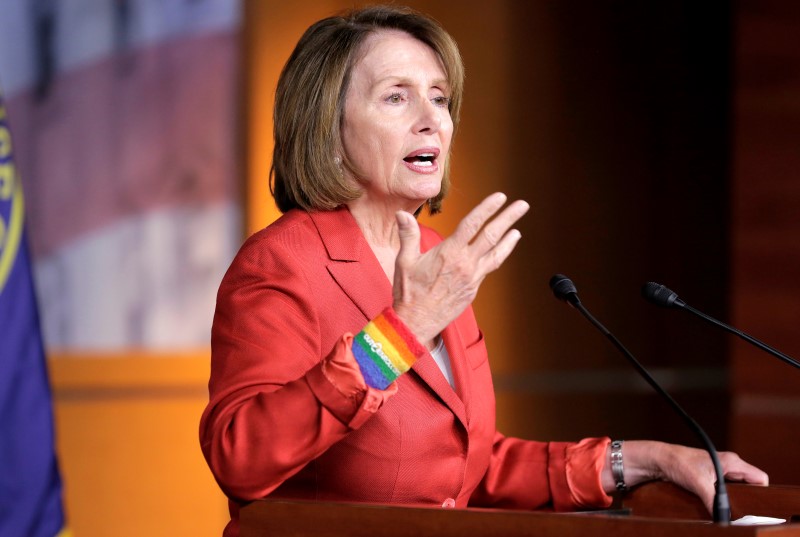Bitcoin price today: falls to 2-week low below $113k ahead of Fed Jackson Hole
By Geoffrey Smith
Investing.com -- The $2 trillion U.S. stimulus package clears the Senate 96-0 and moves to the House of Representatives, where a vote is scheduled for Friday. Global stock markets are down after their first back-to-back gains in six weeks, bracing for a record leap in U.S. jobless claims. Ford and Occidental Petroleum (NYSE:OXY) become the latest, and highest-profile 'Fallen Angels', and the euro zone is set for another bad-tempered clash over joint debt issuance to fight the Covid-19 outbreak. Here's what you need to know in financial markets on Thursday, March 26th.
1. Stimulus bill passes in the Senate, moves to House
The ‘phase 3’ package of support measures for the U.S. economy moves to the House of Representatives, after the Senate finally approved the $2 trillion bill by a reassuring 96-0 vote.
The bipartisan support reduces the risk of major holdups in the House, whose Speaker Nancy Pelosi had repeatedly attacked its generosity on government support for large corporations.
A vote in the House is due on Friday, after which it is likely to be signed into law immediately by President Donald Trump.
2. Jobless claims to show extent of economic damage from pandemic
The scale of the impact of the Covid-19 pandemic on the U.S. economy will become clearer as the U.S. releases initial jobless claims for last week at 8:30 AM ET (1230 GMT).
A record surge is expected, reflecting the laying off of workers as states and cities across the country prepared to go into lockdown.
Expectations for the number are widely spread, ranging from 2 million to over 4 million, compared to last week’s 281,000.
California Governor Gavin Newsom said that in his state alone, over 1 million people had filed new claims last week. California is ahead of the infection curve in the rest of the U.S., so increases in other states may not be as severe.
3. Stocks set to open lower after two straight Up Days
U.S. stocks are set to open lower after posting their first back-to-back gains in six weeks as the Senate’s stimulus bill finally passed.
By 6:50 AM ET (1050 GMT), the Dow Jones 30 futures contract was down 98 points or 0.5%, while the S&P 500 Futures contract was down 0.9% and the Nasdaq 100 contract was down 0.8%.
Stocks had also retreated overnight in Asia, where the Nikkei fell by 4.5% and the Chinese CSI 300 by 0.4%. Europe also gave up some recent gains, the benchmark Stoxx 600 losing 1.2%.
Despite that, funding stresses in many markets seemed to ease further, the dollar index falling 0.7% to its lowest in over a week.
4. Fallen Angels
Ford Motor's (NYSE:F) credit rating was downgraded to junk by Standard & Poor’s, in what was arguably the highest-profile illustration yet of a trend that is fast getting real in corporate debt.
Occidental Petroleum (NYSE:OXY) was also cut to junk after a two-notch downgrade to BB+ from BBB.
The distinction between investment grade and junk has become more important in the last week, as only the former qualifies for the Fed’s new backstop measures for the corporate debt market. That makes high-yield issuers, including the likes of United Airlines which was downgraded further into junk territory on Wednesday, particularly dependent on the bailout provisions of the phase 3 U.S. stimulus bill.
5. Argument over Euro bonds set for another round
European Union leaders are set to press Germany and others to agree to the issuance of common bonds to finance the explosion in government spending and deficits caused by the Covid-19 outbreak.
Nine leaders, including French President Emmanuel Macron and the prime ministers of Spain and Italy, published a direct appeal to EU Council President Charles Michel on Wednesday for “corona bonds”, a day after the Netherlands, Germany and Austria had refused to discuss it at a meeting of eurozone finance ministers.
The argument threatens to put in the spotlight longer-term issues of debt sustainability among the euro zone’s periphery, reviving concerns over the currency union’s long-term viability.
